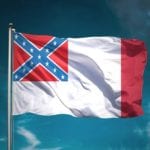 Mysteries
Mysteries  Mysteries
Mysteries  History
History 10 Surprising Stories About the Texas Rangers
 Humans
Humans 10 Philosophers Who Were Driven Mad by Their Own Theories
 Miscellaneous
Miscellaneous 10 Video-Game-Worthy Weapons and Armors from History
 Weird Stuff
Weird Stuff 10 Psychics Who Accurately Predicted Wartime Events
 The Arts
The Arts 10 Pieces of Art Inspired by a Broken Heart
 Health
Health 10 Science Fiction-Sounding New Medical Treatments
 History
History 10 Surprising Facts About the Father of Submarine Warfare
 Space
Space Ten Astonishing New Insights into Alien Worlds
 Weird Stuff
Weird Stuff 10 Bizarre Summer Solstice Rituals Still Practiced Today
 Mysteries
Mysteries Top 10 Haunting Facts About the Ghost Ship MV Alta
 History
History 10 Surprising Stories About the Texas Rangers
 Humans
Humans 10 Philosophers Who Were Driven Mad by Their Own Theories
Who's Behind Listverse?

Jamie Frater
Head Editor
Jamie founded Listverse due to an insatiable desire to share fascinating, obscure, and bizarre facts. He has been a guest speaker on numerous national radio and television stations and is a five time published author.
More About Us Miscellaneous
Miscellaneous 10 Video-Game-Worthy Weapons and Armors from History
 Weird Stuff
Weird Stuff 10 Psychics Who Accurately Predicted Wartime Events
 The Arts
The Arts 10 Pieces of Art Inspired by a Broken Heart
 Health
Health 10 Science Fiction-Sounding New Medical Treatments
 History
History 10 Surprising Facts About the Father of Submarine Warfare
 Space
Space Ten Astonishing New Insights into Alien Worlds
 Weird Stuff
Weird Stuff 10 Bizarre Summer Solstice Rituals Still Practiced Today
10 Bizarre Tales From Self-Proclaimed States
Anyone can unilaterally declare their own fake nation-state. All it takes is an audience and the willingness to go down in Wikipedia history as the self-proclaimed King of ListverseTopia (or whatever). But it takes a special kind of insanity to believe your own spiel and to get others to start believing it, too.
10The Italian Tax-Dodge State
Giorgio Rosa was a man with a vision. In 1967, the Italian engineer decided to construct his own island state in international waters out of a self-professed love for “liberty.” Sinking nine pylons deep into the Adriatic Sea, Rosa and a handful of friends built a 400-square-meter (4,000 ft2) platform, declared their independence from Italy, and immediately began printing stamps for the new Republic of Rose Island.
The official response was disproportionate. Faced with what appeared to be a tax-dodging micro-nation setting up shop just off their coast, the Italian state annexed the territory and set it on fire.
Only a few weeks after independence, authorities landed on Rose Island and quickly arrested Giorgio Rosa. Then they strapped explosives to the pylons, got everyone into the boat and blew the place sky-high. Although Rosa lodged an official complaint with the state, he and his government were ignored. However, their adventure did have a direct effect on world policy. Faced with copycats emerging across the globe, the UN ratified the 1982 Convention of the Sea, forbidding people from creating their own island nations.
9The Greenpeace Eco-State War
Greenpeace has never been above the odd publicity stunt to draw attention to their cause. Perhaps none has been as ambitious as their 2008 effort in the Czech Republic. Determined to stop the US from installing a new radar base in the Brdy region, the group fenced off the construction site, occupied it, and declared the territory an independent state.
Known as Peaceland, the new state was no different from any other large protest camp. But it did have one hilarious side effect. Irritated by all these protestors coming and messing up his countryside, Czech journalist Jiri X. Dolezal responded by setting up his own rival nation and declaring war on Peaceland.
As president and sole citizen of The Democratic Republic of Travarovice, Dolezal petitioned the Czech military to let him attack the Greenpeace settlement, claiming he wished to get inside the camp and urinate “as an act of war.” He also began his own hunger strike in support of US missile defense stations, claiming each side of the debate had an equal right to have their voices heard.
Before the two states could engage in any serious conflict, the Czech police demolished Peaceland and arrested its entire citizenry.
8The Missing Empire Of The Sahara
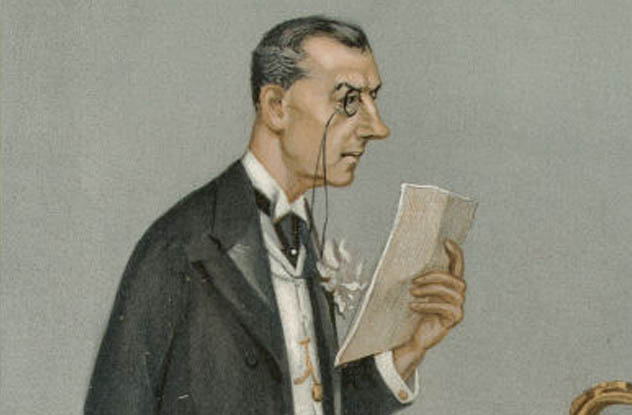
Jacques Lebaudy may be the greatest eccentric you’ve never heard of. A French sugar millionaire with pretentions of royalty, he decided in 1903 to become an emperor. To that end, he recruited a dozen sailors and sent them off into Morocco to capture the entire Sahara.
Things didn’t exactly work out. The sailors were captured by Arab traders not long after landing, forcing the French government to step in and shell Morocco when Lebaudy refused to pay their ransom. Not pleased with this waste of resources, the French declared Lebaudy a fugitive, causing him to flee to London—where things got really odd.
Despite capturing a grand total of nothing, Lebaudy began calling himself the Emperor of the Sahara. He surrounded himself with courtiers and had his own flag designed and banknotes printed. He also commissioned a national anthem, which he forced local musicians to play whenever he entered a room. All this time, he made plans for a grand coronation that would see him return to the Sahara and claim his rightful throne.
It couldn’t last. Lebaudy got fed up with his London life and moved to New York. He ultimately died as oddly as he’d lived, shot dead by his own wife.
7Tasmania’s Short-Lived Grand Duchy
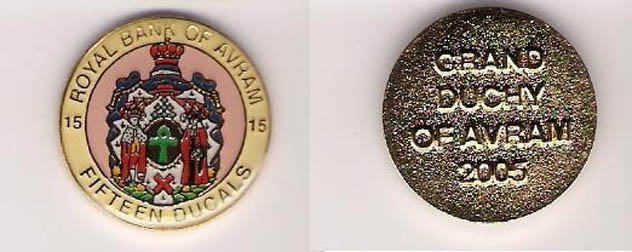
One of libertarianism’s positions is the ability for people to set up their own currencies, an act that tends to get you arrested in most of the world. So when Tasmanian resident John Charlton Rudge wanted to issue his own currency, he decided to include a get-out-of-jail-free card by declaring part of his store an independent state.
Known as the Grand Duchy of Avram, the state officially held no territory and issued coins from a “B_NK” to avoid legal proceedings. For a while, it worked. Hundreds of curious people flocked to Rudge’s store to exchange their Australian dollars for his currency, and before long, Tasmania was doing a roaring trade in the Duchy’s so-called ducals. Then the Australian government began to take note.
Here’s where things get a little hazy. We know that the Australian government raided the Grand Duchy and confiscated all of Rudge’s coins. We know that he was arrested. But the outcome of the case is unclear. Rudge and several others claim he was brought to trail and found not guilty, which makes both his country and currency de facto legal. Others think the state merely decided not to prosecute. Either way, he continued to print coins after his arrest. Occasionally, they even turn up on eBay.
6The Italian Maybe-State
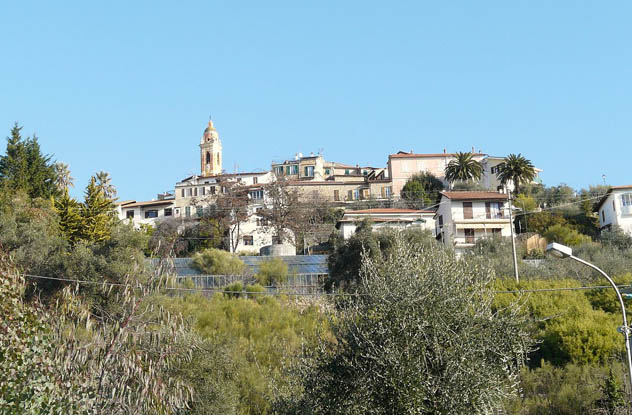
Unlike most of the wannabe nations on this list, the tiny Italian state of Seborga might have a genuine claim. Set up by local eccentric Giorgio Carbone in 1963 and with a population of only 374, the town could legally be one of Europe’s last surviving city-states.
The evidence hinges on documents supposedly found by Carbone in the Vatican archives. According to the documents, Seborga was a sovereign state as far back as 954 and even printed its own currency. Run by abbots, it was illegally sold to Sardinia in 1729.
Carbone realized if Seborga wasn’t legally part of Sardinia when the larger state joined the Italian Union in 1861, then Seborga never joined modern Italy. That would mean every single treaty since the dissolution of Sardinia was null and void as far as the village was concerned—making it de facto independent.
Italy strongly disagrees with this assessment. Officials claim Carbone invented this assertion as a way of attracting tourists.
Not everyone is so sure. Burkina Faso, San Marino, and eight other states have officially recognized and exchanged ambassadors with Seborga, and the town operates a handful of foreign consulates. Russia, Sri Lanka, Luxembourg, and Andorra have even sent official envoys—giving it a better claim to statehood than plenty of more famous examples.
5The Recognized French Republic
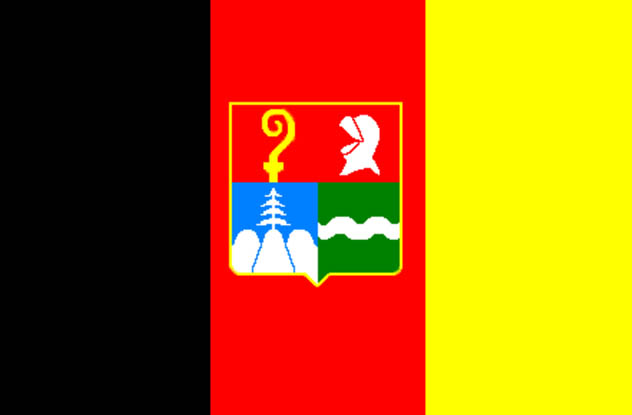
In 1947, a French hotel owner in Montbenoit made a passing joke that would become a local legend. During a visit by the local prefect, the owner Georges Pourchet claimed a permit was needed to enter the “Republic of Saugeais.” It was a name he’d made up on the spot, but the prefect played along and anointed Pourchet “President of Saugeais.” It was the start of one of France’s most whimsical movements.
Inspired by his new position, Pourchet roped 11 villages into his republic and declared them a nation-state. Officials were elected by applause-o-meter, and ambassadors were appointed as far away as Switzerland. The new citizens began energetically promoting their new state, resulting in a tourism boom that made local government look on the Republic very favorably indeed.
Today, Saugeais is so popular that it has its own page on Montbenoit’s official tourism website. The postal service has delivered letters using Saugeais’s own stamps, leading some citizens to claim it’s therefore an officially recognized nation.
4The Millionaire’s Paradise Acknowledged By A President
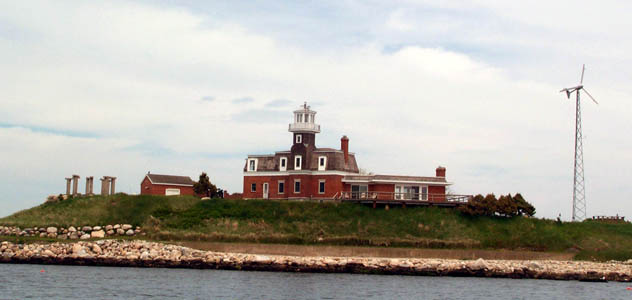
Not every micro-nation gets acknowledged by a US president. But not every micro-nation is North Dumpling Island. A tiny stretch of land owned by Segway inventor Dean Kamen just off the coast of Connecticut (though technically part of New York), the island boasts its own flag, currency, constitution, navy, air force, and presidential seal of approval.
The secession was triggered in 1987 when New York officials objected to a wind turbine Kamen had installed on the island. Angry and petulant, Kamen did what any multimillionaire would do and moved to another country: his own. Using a combination of wind and solar energy, he took North Dumpling completely off the grid, threatened to annex Connecticut, and generally did everything in his power to irritate the officials who had turned down his turbine. He even contacted his friend George H.W. Bush and had him sign a treaty of non-aggression—meaning North Dumpling technically has greater recognition than Kurdistan or Catalonia.
The dispute with New York State fizzled out. But to this day, Kamen maintains that his personal island counts as a fully independent nation.
3The State That Blocked A London Road
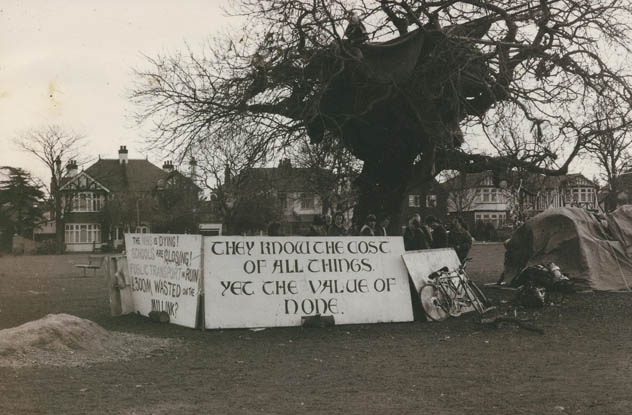
In the early ’90s, the UK government embarked on a grand road-building program. Fields were paved over, woods were chopped down, and houses were demolished as great concrete tributaries spread out across Britain. Until that is, they reached Wanstead, where protestors briefly halted the building by declaring their houses a sovereign nation.
Known as Wanstonia, the republic was centered mostly around a tree house protestors had built on one of the lawns scheduled for destruction. This turned out to be a good decision on their part. After The Guardian published a piece on the fledgling nation, several people in the UK wrote letters of support. Lacking an address, they simply sent it to the tree house. The mailman delivered the first one—and the protestors took this as a sign their republic had been legally recognized.
As a result of the letter being delivered, the tree house was declared a lawful dwelling in the high court, holding up demolition work significantly. Although Wanstonia itself was never legally recognized, the protestors still crowed that the verdict had made them official . . . right up to the point where the police entered and pulled the entire republic down.
2The Briefest Of Empires
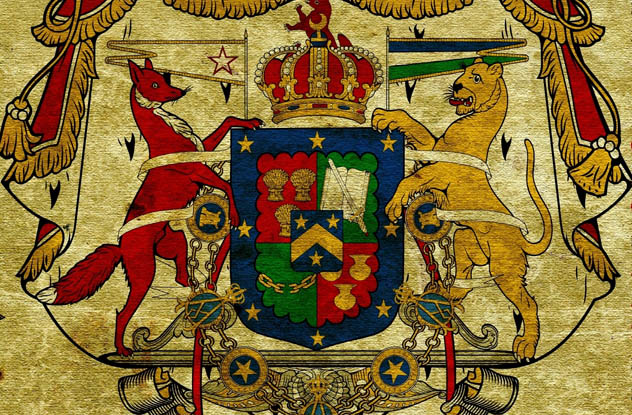
Situated in the cold and lonely wilds of Patagonia, the Kingdom of Araucania and Patagonia has a strange and tortured history. Home to the Mapuche Indians, it originally fended off Spanish conquistadors only to be subjugated by Chilean and Argentinian forces in the mid-19th century. At that point, French adventurer Orelie-Antoine de Tounens stepped in.
A deeply eccentric man with fabulous facial hair, Orelie-Antoine convinced the Mapuche to declare independence, make him king, and draw up their own constitution. He then took the constitution to Chile in the hopes of gaining government acceptance for the new state, but he instead wound up getting kidnapped and forcibly placed in an insane asylum. Eventually repatriated by France, he made three subsequent attempts to claim his throne, but got robbed, kidnapped, or imprisoned each time.
But the story doesn’t end there. After Orelie-Antoine died, the title passed down to another Frenchman, eventually coming to the hands of Philippe Boiry. Under his watch, Araucania and Patagonia made a presentation on indigenous rights to the UN and even briefly held overseas territory. In 1984, the kingdom’s French consul hoisted the nation’s flag over three tiny islands held by Britain and managed to keep it flying for several hours. Nearly 150 years after Chilean authorities shut it down, Araucania and Patagonia became a physical entity again, if only for a single day.
1The Most Peaceful Nation In The Middle East

When Eli Avivi decided to settle there in 1952, Akhziv was just rubble. A village on the border of Lebanon that got caught up in the Arab-Israeli Wars, it was the sort of desolate wasteland Avivi couldn’t imagine anyone ever missing. For 18 years, he was right. No one paid attention as he slowly built a collection of huts and started to settle down. Then, one day in 1970, the Israeli state came calling, bulldozers in tow. So Avivi did the only thing he could think to do. Building a fence, he declared the independent republic of Akhzivland.
The act got him arrested and brought before a court. However, in a moment no one could have predicted, the judge sided with Avivi. Telling the police that no crime had been committed, he returned Akhzivland to Avivi and granted him permission to own it on lease for the next 99 years.
Akhzivland is still there. With a year-round population of two people plus some cats, dogs, and tourists, the state could be the only nation in the Middle East that has never engaged in a military conflict. Not bad going for a state made up on the spot some 45 years ago.






